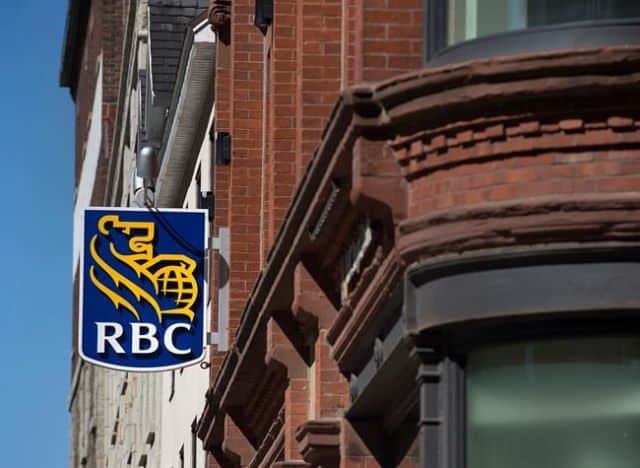
Royal Bank of Canada increased its dividend as its third-quarter profit rose by five per cent to hit a record, but the lender’s latest earnings missed estimates as challenging market conditions weighed on its capital markets division.
Earnings from its investor and treasury services arm also fell, but strength in personal and commercial banking, wealth management and insurance compensated for these weaknesses to reach a new quarterly high.
“This is a record quarter for RBC at $3.3 billion, driven by really strong client volumes, revenue from our retail businesses… We’ve had a couple of challenging outcomes, in investor and treasury services,” RBC’s chief executive Dave McKay told analysts on Wednesday.
“But overall, we feel good about the momentum and feel ready to challenge the headwinds that are coming at us.”
RBC was the first of the Big Six banks to report its financial results for the quarter ended July 31, setting the tone for the sector as it contends with trade uncertainty and geopolitical tensions.
Canada’s biggest bank by market capitalization reported $3.3 billion in net income for the quarter, up five per cent from $3.1 billion a year ago.
The bank’s diluted earnings per share was $2.22, up from $2.10 a year ago. On an adjusted basis, RBC’s diluted cash earnings per share for the third quarter of its financial year amounted to $2.26, compared with $2.14 during the same quarter in 2018.
That fell short of the $2.30 expected on average by analysts, according to financial markets data firm Refinitiv.
RBC also said Wednesday that it will now pay a quarterly dividend of $1.05 per share, up three cents or three per cent.
“Overall, the results came in below consensus largely owing to lower trading revenue and rate headwinds in the investor and treasury services business, with several other areas — including Canadian banking — showing well,” CIBC Capital Markets analyst Robert Sedran said in a note to clients.
RBC’s personal and commercial banking division saw net income of $1.66 billion, up 10 per cent year-over-year due to volume growth and higher spreads in Canadian banking.
Its wealth management arm, which includes Los Angeles-based bank City National, reported net income of $639 million, up 11 per cent from the year prior, largely due to higher average fee-based client assets and an increase in net interest income. City National saw loan growth of 17 per cent year-over-year during the latest quarter, RBC said.
The bank’s insurance division saw net income rise by 29 per cent to $204 million during the quarter.
However, RBC’s capital markets division saw net income drop by six per cent year-over-year to $653 million, amid lower client activity in global equities.
Its investor and treasury services division reported third-quarter net income of $118 million, down 24 per cent from the same period in 2018, due to lower client deposit margins, lower revenue from its asset services business, and lower funding and liquidity revenue.
The bank’s key measure of financial health, called the common equity tier 1 ratio, was 11.9 per cent as of July 31. That’s up from 11.8 per cent during the previous quarter and 11.1 per cent during the third-quarter of 2018.


